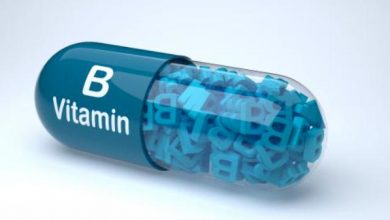What is WHEY protein? And how it should be consumed
Protein is an essential nutrient that everyone needs daily. Protein plays a critical role in repairing the body’s cells, repairing and rebuilding muscles and bones, and controlling many of the body’s most important metabolic processes. Protein is a vital source of energy for the body.
WHEY protein was available long before you thought. This supplement is made from the same milk that we eat every day. WHEY protein is a pure, natural, and quality protein produced when cheese is extracted from cow’s milk. Whey protein is a rich source of essential amino acids. The body is unable to make these amino acids and meets its daily needs by eating protein-rich foods. Essential amino acids are the building blocks of muscles, skin, nails, and other body tissues.

Research shows that WHEY protein is the most excellent type of protein and is a perfect choice for people of all ages.
WHEY protein types:
- Hydrolyzed WHEY protein: They are usually used in clinical applications because they are partially crushed and easier to digest.
- WHEY PROTEIN SEPARATE: Contains the least fat, lactose, and cholesterol and has 90% more protein
- WHEY PROTEIN CONCENTRATION: Depending on the product contains fat, lactose, and up to 89% protein.
WHEY PROTEIN ORIGIN:
Approximately 80% of milk protein is casein, and the other 20%. Quality assurance specialists first test fresh milk before pasteurization. Then, casein and milk fat are separated to make cheese, and what remains is WHEY protein.
BENEFITS OF WHEY PROTEIN
Several studies and experiments on WHEY protein have shown that this protein is a protein prone to reduce cancer, fight HIV, increase immunity, reduce stress and lower cholesterol, increase serotonin levels in the brain, improve liver function from hepatitis, Hypotension. Increased physical function of the body is an example of this.
One of the apparent effects of WHEY protein is its ability to increase GSH glutathione. GSH is the most important water-soluble antioxidant found in the body.
Because GSH is recognized as an essential ingredient for immunity, oxidative stress, and health, reducing it is associated with many diseases. WHEY protein has a special place in people’s diets. Another symptom of a decrease in GSH in athletes is the development of burnout syndrome. Therefore, it is probably tough to use WHEY protein to prevent or at least relieve fatigue.
Some of the benefits of this protein include the following:
1- Increase body muscle mass (easily absorbed by the body)
2- Loss of body weight, mainly body fat
3- Increasing the immune system by increasing the amount of glutathione
4- Cancer prevention
Contribute to the activity of T lymphocytes, which play an essential role in the immune response and therefore reduce the breakdown of body tissues during the disease and increase the level of health and accelerate the recovery of the body after the illness.
New studies also show that this protein also prevents breast cancer.
Why is WHEY protein so important?
The by-product is cheese products. WHEY is the fluid that remains after milk has thickened. It is interesting to know that this liquid was previously discarded. It was later found to contain complete proteins that help with protein synthesis and muscle building.
There are other reasons for this: It contains essential amino acids, including leucine. Leucine is a vital amino acid that plays a crucial role in protein synthesis.
WHEY supplementation is quickly digested after exercise and releases large amounts of leucine into the bloodstream, making it effective. Researchers have shown that the earlier the protein is absorbed and the higher the leucine, the more muscle growth you will have. That is why the WHEY supplement is the best supplement after the training session.

What are the properties of WHEY protein?
Whey protein is one of the highest quality protein sources and ideal for men and women of all ages. WHEY protein not only provides the essential chain amino acids for professional athletes but also helps to improve muscle tissue. The body rapidly absorbs whey protein due to its short-chain amino acids, promoting optimal muscle growth and development. It has desirable characteristics such as weight control, cardiovascular health, and bone health.
How long does the protein expire?
The packaging of all protein products is the expiration date and how it is consumed. Consumption of expired proteins due to the loss of by-products that change their color and taste can also cause stomach upset or worse conditions.
WHEY protein is less likely to spoil due to microbial growth provided it is packaged in an opaque, water- and moisture-impermeable environment.
Although the amount of fat in these proteins is low, some fat is broken down by chemical decomposition by oxygen in the air. The provider has suggested that you stay.
Can people with lactose intolerance use WHEY protein?
It is almost lactose-free but may contain a small amount (half a gram). People with lactose intolerance can easily take this substance without worrying about its side effects. In case of any doubt, these people can consult their doctor.
The best time to eat WHEY protein
But new research shows that how you plan to get protein in an hour after exercise can define all the differences in your body’s progress. In the latest study published in the new version (Nutrition and Metabolism), researchers participated in a leg training session with a group of weight-bearing men and then divided them into two groups.
Over the next 12 hours, they consumed 80 grams of protein in three different ways:
1- 8 to 10 grams every 90 minutes
2- 20 g every 3 hours
3- 40 grams every 6 hours.
The researchers measured the protein equation, protein synthesis, and degradation. At the end of the study, participants who ate 20 grams of WHEY every three hours sat at the table, and their net protein balance was higher than the other two groups. They concluded that consuming 20 grams of WHEY protein every 3 hours after exercise is the most effective way to consume protein to recover and synthesize muscle protein.
Whey protein powder may be the best supplement for a meal immediately after exercise and much better than meat and milk (ki-sin). You ask why? Because protein is digested and absorbed very quickly and the body’s ability to make optimal use of concentrated amino acids in the post-workout period is very high. To double the effect of this meal, add amino acids with BCAA bran to the protein.
The fact is that the best time to take BCAAs is post-workout meals, not during exercise.
How and when should we use protein?
You do not need to eat WHEY protein raw. In fact, with a bit of effort and a little creativity, you can mix and consume a variety of protein drinks and foods with protein.
In terms of the time of consumption, consumption of WHEY protein can not be limited to a specific time. Protein is just a protein, and like any other food, you should eat protein if you need to increase the amount of protein in your meal. It should be noted that protein intake in times close to the exercise program, especially before and after exercise, can be beneficial.

How much WHEY protein should we consume?
A typical person needs about 1-2 grams of protein per pound (about 450 grams) of body weight per day. Therefore, an average person weighing approximately 70 kg should consume between 150 and 300 g of protein per day. Protein powders mixed with water or milk are usually of the highest quality and can be used. You certainly do not need to get all the protein you need through supplements. Depending on your needs, you can get some of his protein and the rest through nutrition.
Since not everyone needs the same amount of protein, it is incorrect to specify a specific number for this task. The first thing you need to do is determine the number of calories and macronutrients your daily diet needs. With these nutrients, you can select your protein intake based on it.
Is WHEY protein better than natural foods?
The process of building and rebuilding your muscles is greatly influenced by WHEY protein. This protein is superior to other types of protein in providing your body with excellent amino acids for muscle building, strengthening, and recovery.
Bodybuilders and professional athletes rely more on this type of protein because of its fast digestibility. This is because they drink protein shakes but use less chicken and fish. Your daily protein intake should be more than your daily diet.
Let’s explain why WHEY protein supplements are sometimes better than natural protein foods.
Biological value
Whey protein has the highest biological value of protein. The biological value determines how much protein is absorbed by the body. If the natural value of the protein is 100, the total protein is absorbed.
It is interesting to know that egg has a biological value of 100 and protein WHEY 104.
Amino acid
Proteins are large molecules made up of amino acid chains. Some amino acids are responsible for nail and skin growth, others for hormone production, and still others for muscle growth and recovery.
If you eat natural and high-protein foods such as chicken, fish, or eggs, you will get all the amino acids needed for good health. This is why these foods should always be in your diet and remember that supplements help your diet.
But sometimes, WHEY protein is superior to other protein sources because the protein is easily digestible and quickly absorbed by the body. When you finish your endurance workout, your body needs certain amino acids to begin the healing process.
Digestion
Whey protein is the fastest digestible protein and is absorbed much faster than eggs, milk protein, or other proteins. After exercise, the body loses glycogen, reduces protein synthesis, and increases protein breakdown.
WHEY protein is the best type of protein with minimal fat and carbohydrates. Other protein foods such as chicken or eggs can be high in fat, and sources such as milk or yogurt can be increased in carbohydrates.
WHEY protein with milk vs. water
By reading the label on WHEY protein, we realize that we should consume protein with water or skim milk, but they do not tell us the difference between the two. So I want to take a few minutes and try to explain the pros and cons of each.
Another thing to consider is how your body reacts to milk. I know people who are sensitive to milk, and when they mix it with protein, they become more sensitive and can not digest well.
If you are trying to gain weight and do not care about the number of calories, you should use this solution. A cup of milk can add some protein and about 200 calories, which can be helpful for your weight gain goal.
But keep in mind that your body can only absorb a certain amount of protein at a time, and if you exceed this amount, the body will waste it and get rid of it with some side effects.
Based on my experience with different brands, I can tell you one more thing: some powders are very easy to mix, and others are not. If your powder does not mix well, you should use it with water because it is much easier to mix with water than milk.

WHEY PROTEIN WITH WATER
This is the best solution for quick release and absorption, especially for post-workout supplements. Your body needs immediate protein to repair damaged muscle fibers that you have torn during exercise.
Protein powder is much easier to mix with water due to its low water density.
One of the most common reasons people do not like to eat WHEY protein with water is its taste. They tell themselves that I wouldn’t say I like the taste and can not do anything about it.
With milk, the story is entirely different. But with water, you can be sure that you are consuming only the best kind of pure protein fast. In addition, you will not experience the common side effects associated with WHEY protein in milk. Yes, those side effects include bloating and excessive urination.
On average, one serving of this protein is 30 grams. When it comes to building lean muscle mass, research has shown that WHEY protein, as the best-selling protein supplement that provides the ideal range of amino acids, helps muscle recovery and growth and burn fat. , nice choice.
It is weaned and is known as the most digestible source of complete protein. A complete protein is the source of all essential amino acids.
Branched-chain amino acids are depleted after exercise and must be consumed to maintain muscle tissue, so it is often recommended that you eat WHEY protein after a workout to rebuild muscle damage quickly.
Health benefits:
It can fight cancer because of its antibody content. Research shows that WHEY protein can help the body produce anti-disease antioxidants.
Avoiding a balanced and healthy diet
The simplest and, of course, the most common danger that the consumer suffers from taking these supplements is falling into the trap of unbalanced and unhealthy nutrition. Because with increasing protein intake, the number of nutrients received through food intake will be insufficient and unstable. When you eat protein drinks instead of food, you will be deprived of all the nutrients of a complete and healthy food such as vitamins, calcium, and other nutrients. If you need to take these supplements, do not forget that your body needs different nutrients that must be absorbed daily and sufficient quantities through the consumption of healthy foods.
Consumption of protein powder and calcium deficiency
Protein has an influential role in strengthening bones and preventing the destruction of bone tissue. However, the results of some studies show that a protein-rich diet increases acid secretion, which forces the body to secrete calcium. Having a balanced diet with the right amount of calcium and protein is essential to protect and strengthen bones and prevent osteoporosis. The greater the amount of calcium lost, the greater the effect of taking these supplements in reducing the amount of calcium and severe damage to the bones.
Consumption of protein powder and weight gain
Although protein powder helps with weight loss, fat burning, and muscle building, it can also cause obesity and overweight. When you consume protein drinks and powders, you absorb protein and get extra nutrients and calories. In this case, if you ignore the number of calories you eat, it is possible to gain weight instead of losing weight. Since these powders help increase muscle mass, you have to do heavier exercises to burn calories and increase muscle instead of fat.
Protein powders and heart problems
Eating a protein-rich diet can cause serious heart problems. Although protein supplements do not directly raise blood cholesterol, there is a risk of high cholesterol if you take supplements in addition to the protein in your diet. Some supplements contain cholesterol on their own, so it’s a good idea to know what these supplements can do for your body. Remember that taking these cholesterol-rich supplements simultaneously with foods containing this substance, such as eggs, etc., can cause heart problems.

Take protein supplements and increase your fat intake.
Have you ever read the nutritional value of your protein drink? If not, do it this time. Although most of these drinks are high in protein and low in fat, some are high in fat. These drinks also contain preservatives. If you do not exercise regularly and do not burn calories and fat in these supplements, there is no reason to take them. You should know that if you do not exercise, the extra protein will turn into fat.
You should know that the body needs more water to metabolize the extra protein.
Without it, your body will become dehydrated. In addition, you should know that the kidneys also suffer because they are forced to secrete acid.
Protein powders and digestive problems
Protein supplements cause digestive problems. Stomach cramps, constipation, bloating, and bloating are symptoms that occur after taking these supplements. Protein takes time to digest and stays in the stomach longer if you do not eat enough carbohydrates. People who suffer from lactose intolerance are more likely to have digestive problems because most of these supplements contain lactose and casein, multiplying the problem.
Protein powders and secret compounds
A complete list of ingredients is rarely written on the packaging of protein powders and beverages. As a result, consumers are unaware of the presence of compounds such as preservatives. It is good to know that some of the ingredients of these supplements are added to them without following the principles and without control, which will not be helpful for you.
Protein powders and dehydration
Adequate water intake and hydration are essential for people who do bodybuilding, work, or another strenuous exercise. If you are used to using these powders, it is difficult for you to get enough hydration. Research shows that protein powders can make the body more or less thin. This risk increases or decreases depending on the dose and intensity of exercise. You need to know that the body needs more water to metabolize the extra protein it receives, and without it, your body will become dehydrated. In addition, you should know that the kidneys also suffer because they have to work harder to eliminate acid in supplements. If you use these powders, be sure to increase your water intake.
Protein powders expose you to heavy metals.
Some protein supplements contain dangerous compounds, hefty metals such as arsenic, mercury, lead, and cadmium. Studies on 15 protein drinks show that some of these drinks have serious health risks due to the presence of these compounds. Although these compounds are present in small amounts in these drinks, if you are accustomed to consuming them three times a day, they become significant amounts that put the body at risk.










